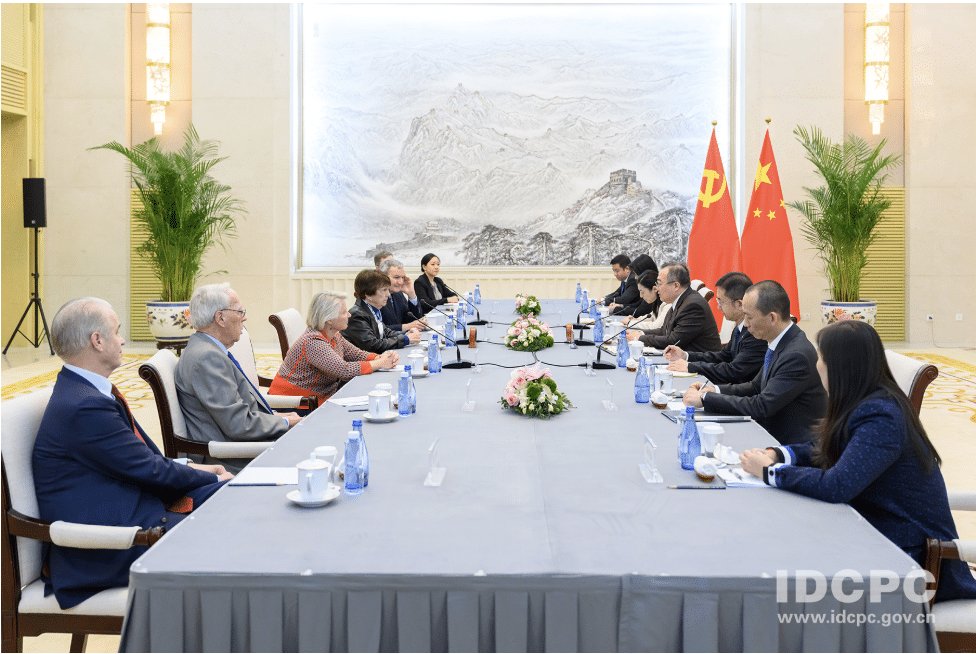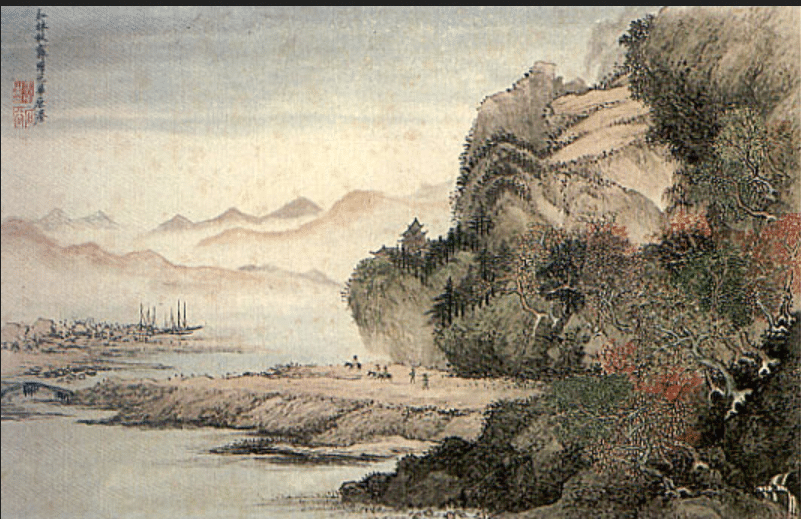Obama, Xi Put Positive Spin On US-China Relations
Chinese President Xi Jinping is currently in the United States to attend the Nuclear Security Summit, along with a host of global figures (including top leaders from India, Japan, Singapore, South Korea, and Thailand). While the theme of the summit is focused on securing nuclear materials and nuclear non-proliferation, Xi’s presence in the U.S. capital recalled the growing list of friction points between Washington and Beijing, from the South China Sea to cyber issues.
On Thursday, Obama and Xi had their first bilateral meeting this year, the latest face-to-face since talks on the sidelines of the UN Climate Change Conference in Paris four months ago.
Obama began his remarks with Xi by repeating the long-standing position that “the United States welcomes the rise of a peaceful, stable, and prosperous China.” Xi, meanwhile, reiterated that “it is a priority for China’s foreign policy to work with the United States to build a new model of major country relations, and to realize no conflicts or confrontation, mutual respect and win-win cooperation.” Both those oft-repeated statements have worn rather thin, thanks in part to increasingly assertive moves in the disputed waters of the South China Sea from Beijing, and increasingly barbed verbal responses from U.S. military officials.
Still, the two sides could — and did — point to some positive progress on nuclear security. In a joint statement on nuclear security cooperation, the U.S. and China pledged to deepen cooperation and coordination to prevent nuclear smuggling and increase the security of nuclear materials. At a press briefing, Laura Holgate, added that Washington was “really quite encouraged by the leadership that China is beginning to show in the nuclear security realm.”
In another positive step, a new nuclear security Center of Excellence opened in China earlier this month, at aceremony attended by U.S. Secretary of Energy Ernest Moniz. Moniz described the new center, the result of close U.S.-China collaboration, as “a world-class facility for Chinese, regional, and international nuclear security training and technical exchanges.”
Meanwhile, White House officials were also quick to note China’s cooperation over the North Korean nuclear issue. Deputy National Security Advisor Ben Rhodes pointed out that the recent UN Security Council sanctions – “the toughest sanctions that have ever been imposed on North Korea” – would not have been possible “without China’s cooperation and support.”
“So we’ve seen China step up in many ways in terms of applying pressure,” Rhodes told reporters in a press briefing on Wednesday. “The fact is, it has to over time affect the calculus of the North Korean leadership.”
Despite the upbeat tone, questions remain about just how coordinated China and the United States are in their approach toward North Korea. Beijing strongly favors negotiations – including peace treaty negotiations on a separate track from denuclearization talks – over sanctions, while the United States continues to emphasize the use of pressure to eventually bring North Korea to the table. Daniel Kritenbrink, the senior director for Asia on the National Security Council, called the North Korea question “one of the most important issues that President Obama and President Xi [will] discuss.”
During his remarks with Xi, Obama noted that “President Xi and I are both committed to the denuclearization of the Korean Peninsula and the full implementation of UN sanctions.” He said the bilateral meeting would include discussions on how to discourage provocations like missile tests.
In another symbol of U.S.-China cooperation on global issues, Obama and Xi will also gather together Thursday, along with the other leaders of the P5+1, to review progress on implementing the nuclear deal reached with Iran last year.
Meanwhile, climate change continues to provide a bright spot for U.S.-China cooperation. In a joint statement, Obama and Xi announced that the United States and China will both sign the Paris climate change agreement on April 22, and committed to completing the domestic processes to join the agreement “as early as possible this year.” The statement also proclaimed that “climate change has become a pillar of the U.S.-China bilateral relationship” and called cooperation in this field “an enduring legacy of the partnership between our two countries.”
The feel-good vibes on climate change might help to somewhat mitigate what Obama predicted would be a “candid exchange” with Xi over human rights, cyber, and maritime issues. However, White House officials appeared to be trying to downplay the South China Sea issue after weeks of sharp exchanges between the U.S. and China. Obama didn’t mention the South China Sea in his brief remarks with Xi; he did not even repeat standard U.S. nods to the importance of freedom of navigation and peaceful settlement of disputes.
In a press briefing prior to the Obama-Xi meeting, Rhodes tried to emphasize that U.S. insistence on principles such as non-militarization and resolving disputes in accordance with international law was “not to single out China.” Rhodes explained that non-militarization of the South China Sea, in particular, is “a principle that we would support as it relates to any country.”
U.S.-China bilateral meetings generally try to stay positive – thus the issuance of a joint statement on climate change, and more optimistic evaluations than usual on thorny issues like North Korea. Still, while handshakes and sunny joint statements can’t paper over growing tensions, holding the meeting at all was a small victory. After all, Xi could have chosen to follow the example of Russian President Vladimir Putin and skip the summit altogether.
By SHANNON TIEZZI Apr. 1, 2016 on The Diplomat
Read more here








